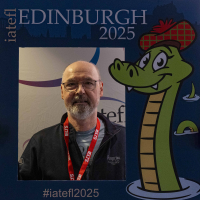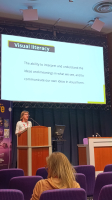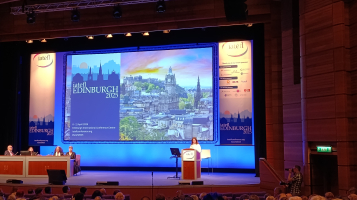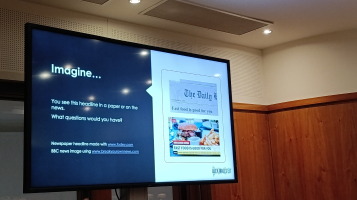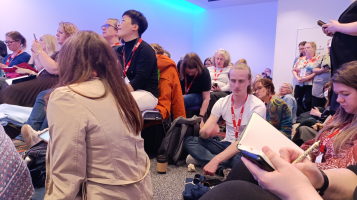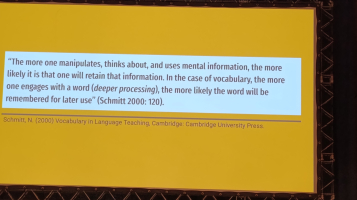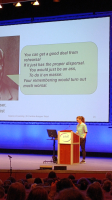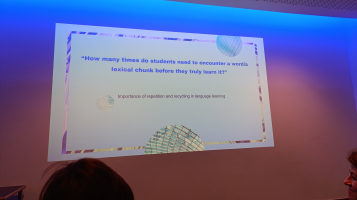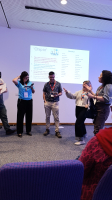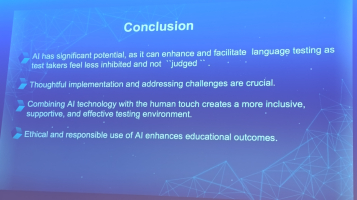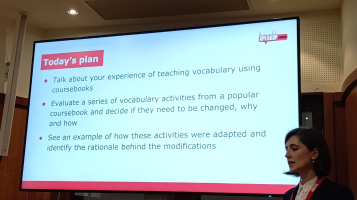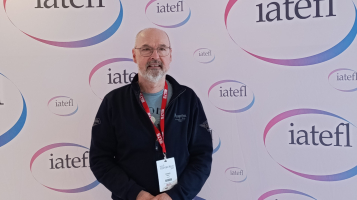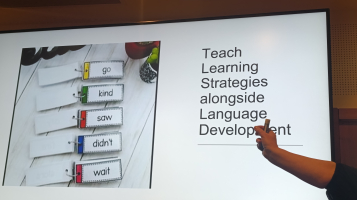- Home
- Reflections on IATEFL Edinburgh 2025
Reflections on IATEFL Edinburgh 2025
06/06/2025 - 22:11
Reflections on IATEFL 2025 in Edinburgh Jacques Henet, Pedagogical Expert – Language Department, Le Forem Last year, Jacques Henet won one of the Joris De Roy Memorial Grants at BELTA Day 2024. In spring, he attended the IATEFL Conference in Edinburgh, which took place from April 8 to April 11, 2025. In this blog post he shares some of his reflections.
This year, I had the pleasure of attending the IATEFL Conference in Edinburgh once again—my first time there was back in 1999. A lot has changed since then, but the event remains as enriching and inspiring as ever. As a former language teacher and now a pedagogical expert supporting instructors at Le Forem, I found this edition to be a stimulating mix of cutting-edge ideas and real-world classroom practice.
One of the standout moments for me was the plenary session by Dr. Carolina Kuepper-Tetzel on the second day. Her talk on the science of learning highlighted the importance of retrieval practice and spaced repetition—simple, evidence-based strategies that are still underused in many classrooms. It was a strong reminder that effective teaching is often about doing the basics well.
As expected, AI was a hot topic this year. While I attended five sessions on the subject, I won’t go into detail here. What struck me most was the growing awareness that while AI tools can support learning, especially in areas like feedback and personalization, human intervention remains essential—particularly when it comes to assessment and learner motivation.
Other sessions offered a wide range of practical, classroom-ready ideas that I found both inspiring and applicable. Several workshops focused on vocabulary and grammar teaching, reminding us of the power of lexical chunks and the need to prioritize frequent language structures over traditional but less useful forms. I was particularly impressed by sessions that encouraged teachers to adapt coursebook activities—often too static—into more engaging, student-centred tasks that promote active use and deeper retention.
Listening and reading skills were also tackled from fresh angles. One presenter argued for designing receptive tasks that reflect how learners use language in real life, while another shared ways to gamify reading to boost motivation. There were also valuable takeaways on supporting low-level learners in writing, using visual literacy to develop critical thinking, and injecting energy into afternoon classes through interactive challenges. What united these sessions was their emphasis on creativity, learner engagement, and simple strategies that make a real difference.
Beyond the sessions, the conference was a fantastic opportunity to connect with teachers from across the globe. The sunny weather was a welcome surprise and made my walks around Edinburgh even more enjoyable—this beautiful city never disappoints.
I truly hope I’ll get the chance to attend another IATEFL conference in the future.

